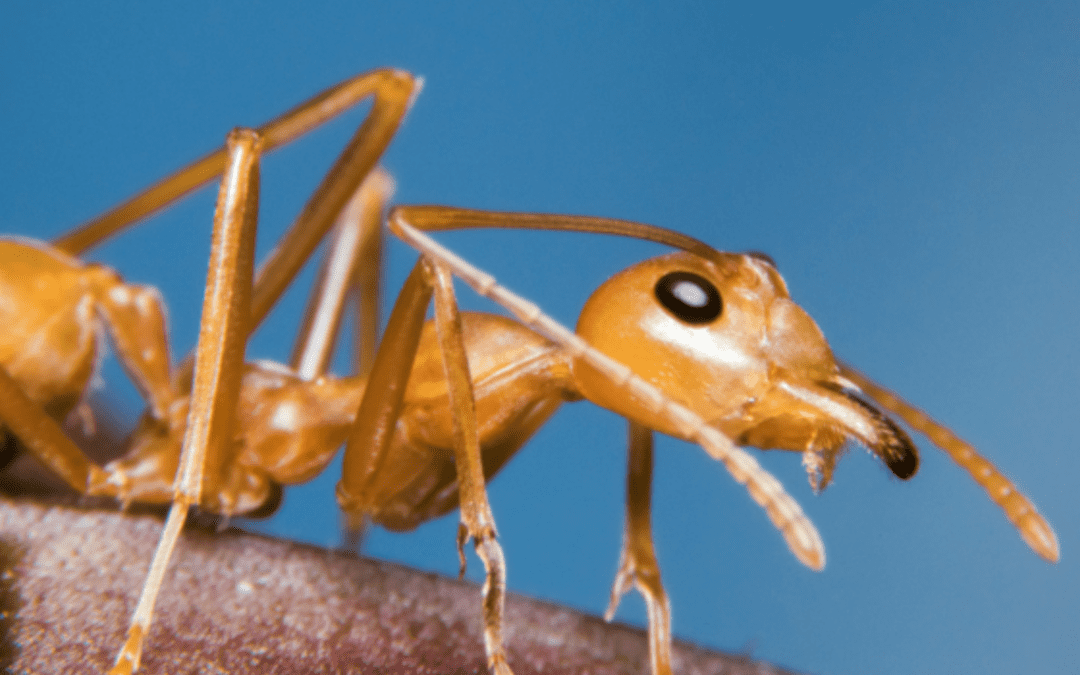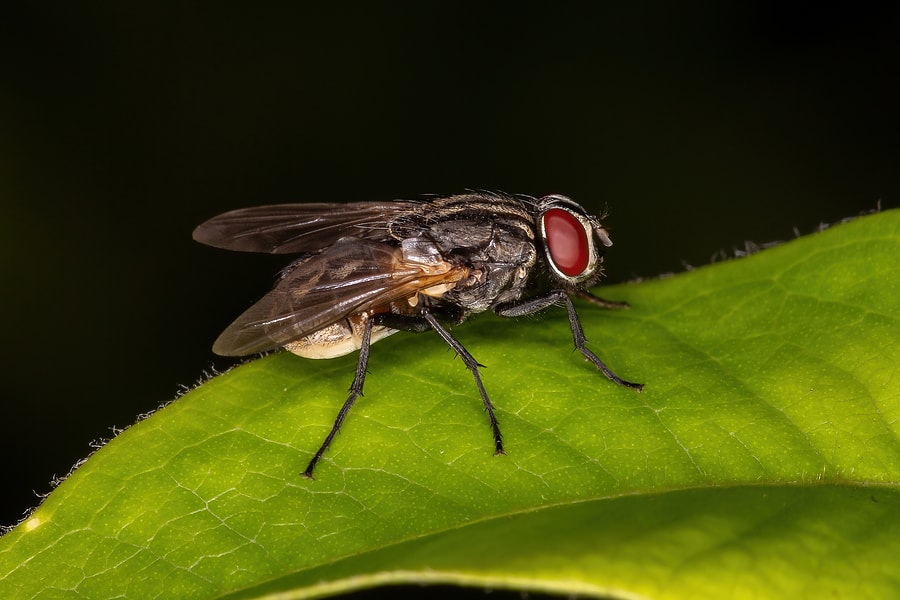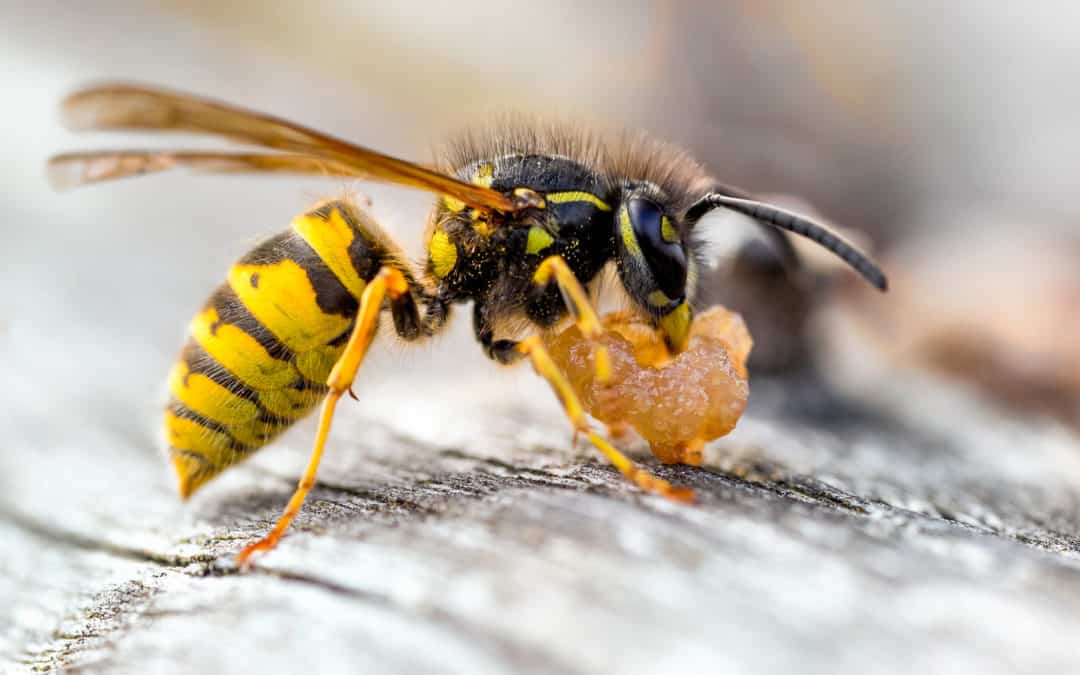READY TO GET STARTED?
REQUEST A FREE ESTIMATE
Fill out the form below or call (888) 466-7849 for a free, no-obligation estimate.

The warmer weather can bring out a mass of pests looking for food, water, and shelter. If certain preventative measures are not placed around your home, pests can easily find their way indoors, making it difficult to get rid of them. Check out our top summer pests and how to prevent them below.
These tiny pests are most active in the summer months due to the warm, humid weather. You will certainly come across mosquitoes and preventing them is easier than you might think. They lay their eggs in standing water, so make sure your property is clear of standing water, including pet bowls and birdbaths. Emptying these items daily will help lessen the possibility of mosquito breeding.
Another small and pesky insect is the ant. These pests love getting into your home to look for leftover food or crumbs. It’s best to vacuum weekly to help alleviate the crumbs leftover in your home. Ants can gain access through the smallest crack or crevice, so be sure to find and seal these as soon as possible.
These pests will eat just about anything, making them hard to get rid of once they’ve invaded your home. Cockroaches can pose a health threat to your family as they are known to spread bacteria and cause severe allergic reactions. The key to discouraging these pests is to eliminate any food sources that are readily available to them. After each meal, wipe down all countertops, stovetops, and spills. Take the trash out regularly and use trash cans with tight-fitting lids.
Dealing with summer pests can be a hassle and take away from your summer fun. If the pest problem is bigger than you can handle, then reach out to your local pest control company to find a prevention plan fit for your home.

Summer can bring out a mass of pests looking for food, water, and shelter. If certain preventative measures are not put in place around your home, they can easily infest inside, making them difficult to get rid of. Here we break down the top three most popular summer pests to look out for and how you can prevent them.
Ants
Ants are small, sneaky, and looking for your leftover food crumbs! These pests can access your home through only a small gap or hole leading inside. Inspect and seal all cracks and crevices throughout the inside and outside of your home. Likewise, eliminating potential food sources they find attractive is a great way to prevent ants. Make sure that you are keeping a clean home by sweeping, mopping, taking the trash out regularly, and immediately cleaning up any spills.
Mosquitoes
Mosquitoes are most active during warmer, humid weather. It’s certain you will come across these pests in the summertime but preventing them from infesting is easier than you think. Mosquitoes will lay their eggs in any standing water. Avoid standing water throughout your property by getting rid of objects that can hold water such as toys, pet bowls, tarps, birdbaths, etc. If clogged, gutters will also hold water, so make sure they are clear of debris to avoid providing them a place to breed and lay their eggs.
Roaches
Roaches eat just about anything, making them difficult to get rid of once they’ve infested your home. These pests can be a health threat as they are known to spread bacteria and cause severe allergic reactions. Eliminating any food source available to them is key to discouraging these pests. After each meal, wipe down any grease from the stovetop and appliances, clean up any leftover crumbs and spills from the countertops, and seal leftover food in airtight containers. Always take the trash out regularly and use garbage cans with tight-fitting lids. Before bringing in any newspapers or packages, inspect them throughout to ensure these pests are not sneaking in.
Dealing with summer pests can be a hassle and take away from all the summer fun! If you are having a summer pest problem, consider calling your local pest control provider. These professionals can provide you with a thorough inspection, identify the type of pest you are dealing with, and provide a treatment and prevention plan fit for your property.

It’s officially barbeque season! Many of us are looking forward to getting together with family and friends during this warm weather for a backyard cookout. Unfortunately, we’re not the only ones who love our outside parties; summer pests are also likely to show up and ruin the fun! While it’s impossible to get rid of all pests outside, it is possible to reduce the chance of them crashing your party by taking a few precautions before your next backyard BBQ!
Prepare Before the Party
Before your party day arrives, put preventative measures in place to avoid pests. Check your doors and windows for any gaps or holes and secure them if needed. Check your yard for items that can hold water such as buckets or toys, which can act as a breeding ground for mosquitoes and empty or remove them.
Choose the Party Time Wisely
Many pests, like mosquitoes, are most active at dusk and dawn. If your party will take place before sunset, plan to have plenty of insect repellent on hand, especially those that contain DEET. Consider putting citronella candles outside near the party area where they can help minimize the presence of mosquitoes.
Secure the Food
Be prepared for pests to swarm the food and drinks you serve. Some pests, like ants, are looking for any food source such as fruit or sweets. Consider serving your food and drinks indoors and use your outdoor space for eating and entertaining. Try to keep your food in sealed containers when possible and, throughout the party, try to wipe and sweep up any food crumbs or spills to keep pests from infesting.
After the Party
As important as it is to prepare for a party, it’s equally important to clean up afterwards to keep pests from taking over your property afterward. Make sure you clean up any trash that’s been left behind, along with sweeping up crumbs and wiping spills. Wash dishes right after the party instead of letting them lay in the sink overnight. Make sure that you’ve placed your trash in sealed, tightly closed garbage containers outside of your house.
Preparing for a party can be stressful enough, but when pests become a problem they can definitely add to your stress. To ensure a pest-free party, consider calling your local pest control company who can provide you with an inspection and a treatment plan.

One thing we look forward to in the summer is warmer weather which lets us spend more time outdoors. Unfortunately for some, this also means summer pests come out full force to ruin your outdoor plans. Some of the most common summer pests are flies, ants, mosquitoes, roaches, gnats, ticks, rodents, and stinging insects like wasps and hornets.
There are five major reasons these pests become more prominent in the summer months. The first is temperature. The temperature outside can affect both the behavior and development of pests. Many of these creatures favor the warmer temps, increasing their activity. Other pests, however, will make their way into your home in an effort to escape the heat. Moisture also contributes to pests invading in the summer. Most pests need water to survive and will thrive in moist environments. The increased humidity and summer rain showers provide ideal conditions for pests to thrive during this season. During times of drought, they will make their way indoors in search of water.
Summer also means longer days and shorter nights. More daylight means more time for pests to stay active in their search for food. Food is another motivator for summer pest activity. Grass and other vegetation grows in abundance in the summer months, providing a literal feast for many pests. This also provides them with an ideal place to hide out. Finally, for many pests summer is one of the busiest seasons of their life cycle. They reproduce at a rapid rate during these months in order to grow their populations before the slow down of the winter months. Many also go in search of food to store away for their upcoming winter hibernation or brumation.
Summer pests don’t have to ruin your good times. Here are some Dos and Don’ts of summer pest control.
If you have a problem with pests this summer, contact your local pest control company who can evaluate your home, identify the type of pest you are dealing with, find how and where they are getting into your home, and provide you with the best treatment and prevention plan for your situation.
Watch Out for These Stinging Pests
Mosquito Control For Warmer Weather
The Summer Big Three: Roaches, Mosquitoes, & Termites

An encounter with a stinging pest can always be alarming, as they are known to have a painful sting. Since stinging pests are most active during the spring and summer, it’s important to know the most commons ones to look out for and how you can protect yourself and your family.
Social in nature, the yellowjacket can live in nests or colonies containing anywhere from 1,000 to 4,000 workers. Yellowjackets tend to build their nests on trees, buildings, and in the ground. Unlike bees, these insects have smooth stingers where they can sting several times if they start to feel threatened, which can be severely painful. These insects are highly attracted to sweet foods and proteins. If you plan on having a picnic or BBQ outside, make sure to keep your food covered tightly to eliminate the chance of attracting them.
Another popular stinging insect you should be aware of this spring and summer is the hornet. Hornets can sometimes be a benefit to homeowners as they can help control common household pests; although, they can quickly become a nuisance as they will often build nests throughout your property, such as in hollow trees, in the walls of houses and attics, and even in abandoned beehives. Like yellowjackets, these insects have smooth stingers. If stung by a hornet, the stinger can get lodged in the skin at the site of the sting. Hornets will eat tree sap, fruit, and honeydew. To prevent an encounter with these insects, keep both your food and garbage sealed in containers.
Known to build construction paper-like nests on branches, porch ceilings, eaves, and attic rafters, wasps can easily infest your entire property. These pests live in small colonies and like to eat nectar, along with common household pests such as flies and caterpillars. If these insects feel threatened or their nest is disturbed, they will sting multiple times. Their stings can be painful and often cause an allergic reaction. If you encounter hornets, don’t swat at them as this will only agitate them; instead calmly walk away and they generally will not follow.
If you’ve noticed these popular stinging insects around and inside your home, it’s best to reach out to your local pest control company to inspect and safely remove these insects.